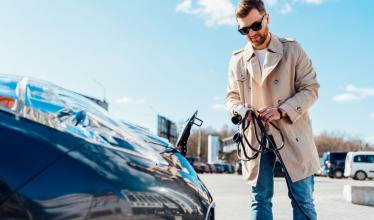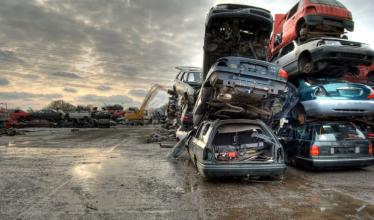Last weekend, members and supporters of Zero Carbon World, a charity promoting decarbonisation projects, drove an original 11-year-old Tesla Roadster from Land’s End to John O’Groats in order to demonstrate the longevity of older electric cars. The aim was also to give a practical demonstration that the often-heard myth of batteries lasting only a few years does not hold true.
The Tesla, originally belonging to Zero Carbon World founder Kevin Sharpe, is the same car that completed the first ever John O’Groats to Land’s End trip by an electric car in 2011. On that occasion, Sharpe and co-driver David Peilow completed the challenge in 36 hours.
This time, however – ten years and 63,000 miles later – the car completed the trip in 21 hours and 27 minutes: more than 14 hours quicker. The Tesla Roadster has the same battery it left the factory with in 2010, and has been fitted with an off-the-shelf rapid charger socket from US supplier QC Charge, enabling it to use the improvements to the charging infrastructure installed during the intervening decade.
The car’s new owner, Zero Carbon World trustee Dean Fielding, set out to show that it was just as capable of doing the drive today as it was in 2011. Joined once again by Peilow, alongside experienced electric vehicle owners Glyn Hudson and Evan Tuer, the team took it in turns to drive the two-seat Tesla Roadster.
“Since I bought the car in 2018 it has been completely reliable, so I was confident that it could still do this trip without a problem. There is a pervasive myth that the batteries in these cars must be replaced every few years at great expense; a myth that has no basis in evidence,” said Fielding.
“What better way to dispel this idea than drive the car the length of the country for a second time? While there is some degradation of the battery over that lifetime, this achievement clearly demonstrates that this has no effect on being able to use the car every day and on long journeys.”

The past ten years have seen significant improvements to UK charging infrastructure.
“Battery technology has continued to progress in leaps and bounds. If this 11-year-old battery can still perform so well a decade on, more modern batteries are likely to last a lot longer,” Fielding added.
The team planned to make nine short stops of around 30 minutes charging to achieve the optimal time, but added a tenth at the last minute when a preferred location was unavailable due to the current rapid charger upgrade programme. Despite this, it was a completely different journey to their first trip.
“When Kevin and I completed the trip a decade ago, each charging stop took between three and four hours – we had time for a three-course meal or a sleep. There were no public rapid chargers in the UK and now there are thousands; we upgraded the car with a rapid charger socket to take advantage of this,” said Peilow.
“Now, a stop took less than 30 minutes – barely enough time for a coffee and sandwich. That is why we took more drivers this time; there wasn’t the opportunity to rest like we did in 2011. This Tesla Roadster was one of the first electric cars of the modern era. The fact that it not only ran without a hitch for over 21 hours, but set such a vastly improved trip time, is testament to the longevity of the technology and the way infrastructure has evolved.”

The car completed the trip more than 14 hours quicker this time.
The journey was sponsored by several players in the energy and EV space: Zap-Map, GeniePoint, myenergi, Octopus Energy, OpenEnergyMonitor, HEVRA, Viridian EV and Dexel Tyre & Auto Centre.
As a charity, Zero Carbon World is accepting donations to support its mission of promoting low carbon technologies and projects. Over £5,000 has been raised so far as a result of the initiative and there is still time to donate. One hundred per cent of contributions will be used to fund such projects, which include donating electric vehicle charging points to businesses and organisations.
Donations can be made via Just Giving: https://bit.ly/3E7ddPY



